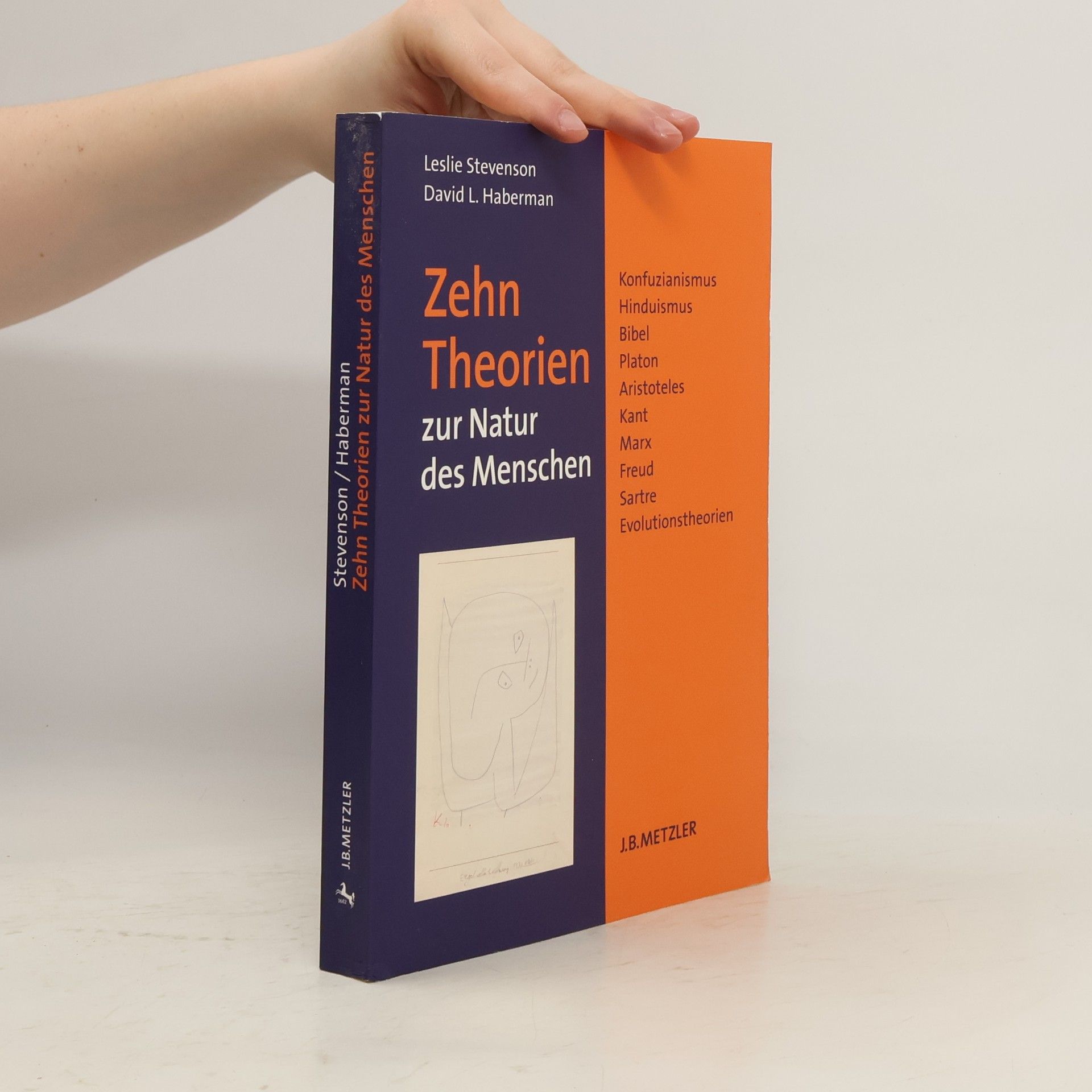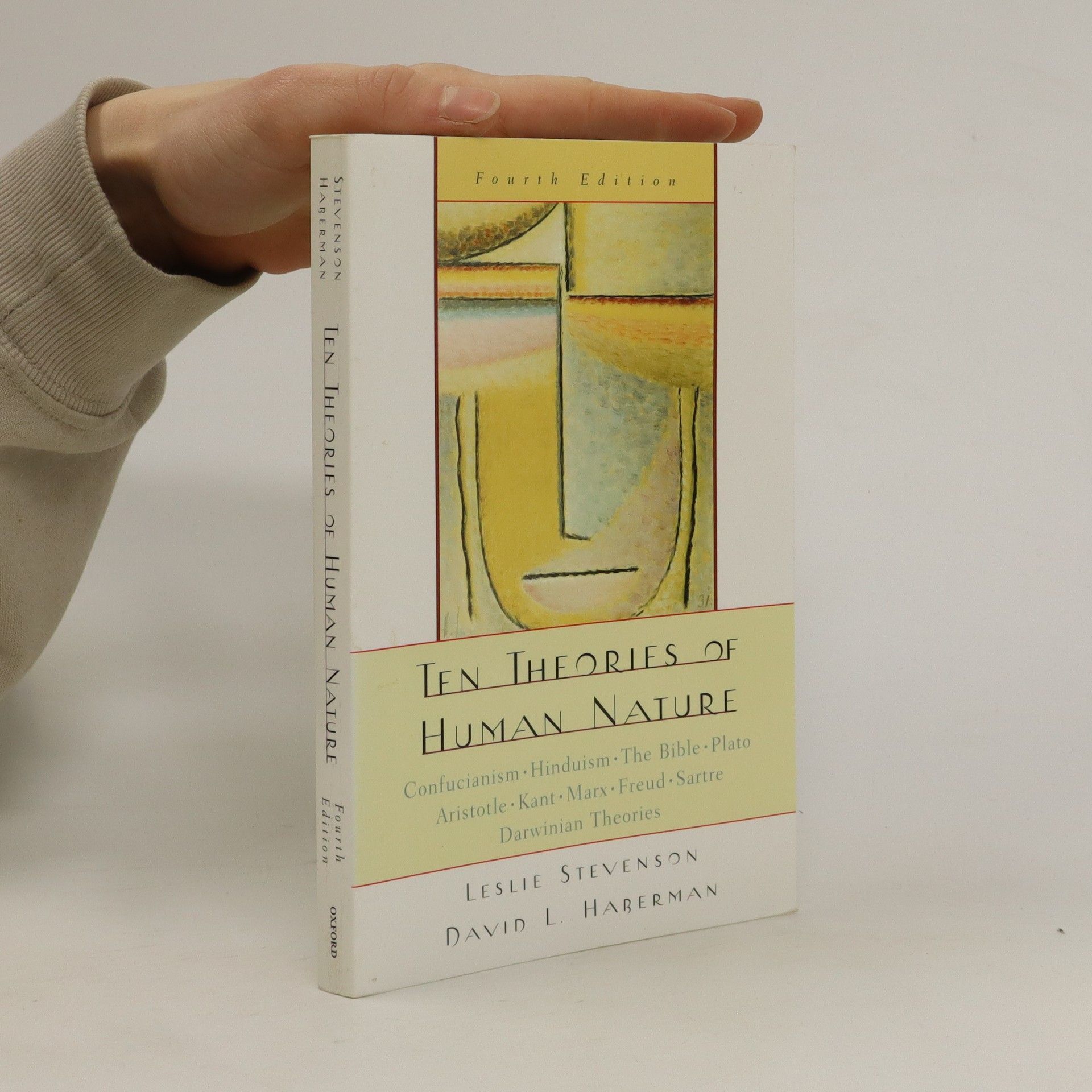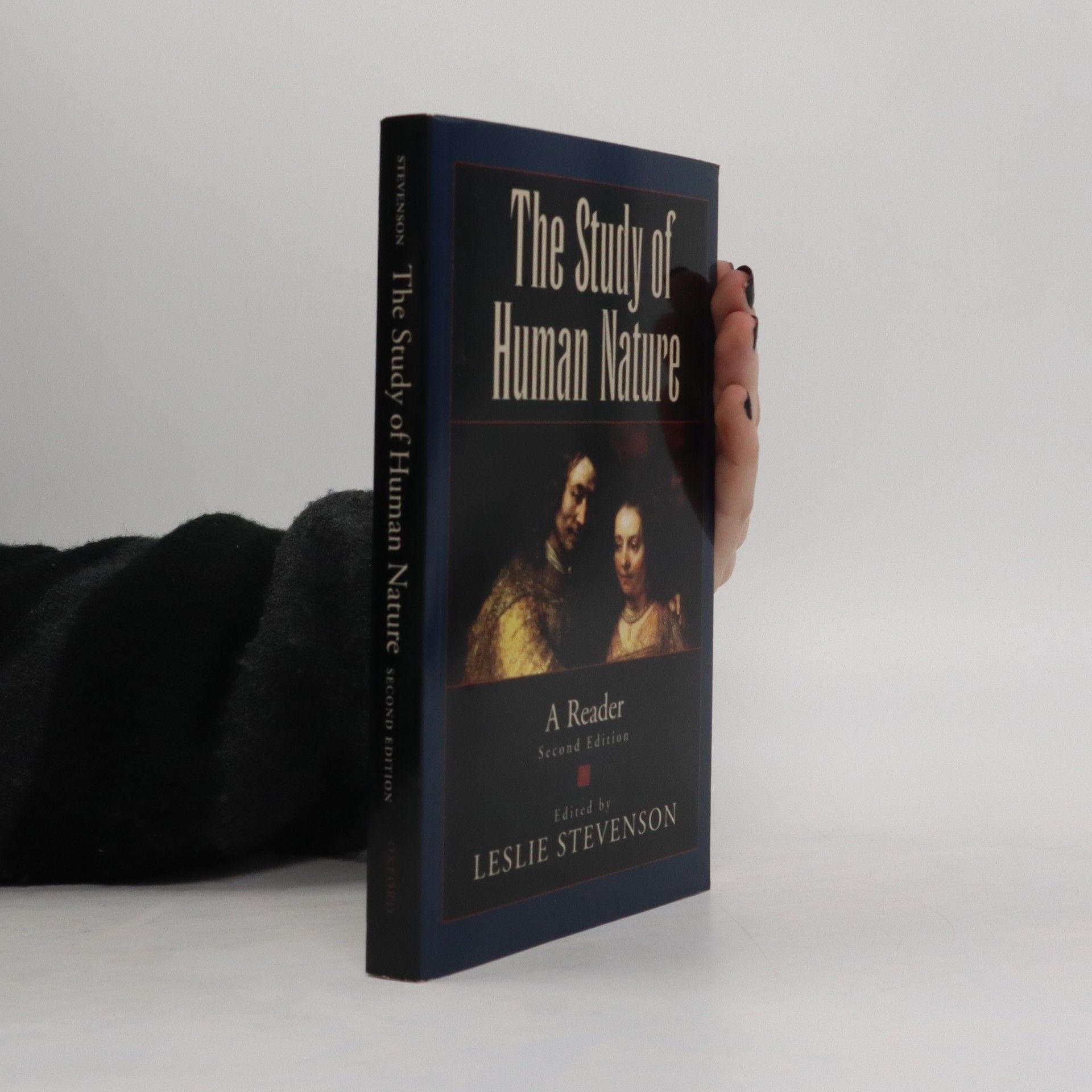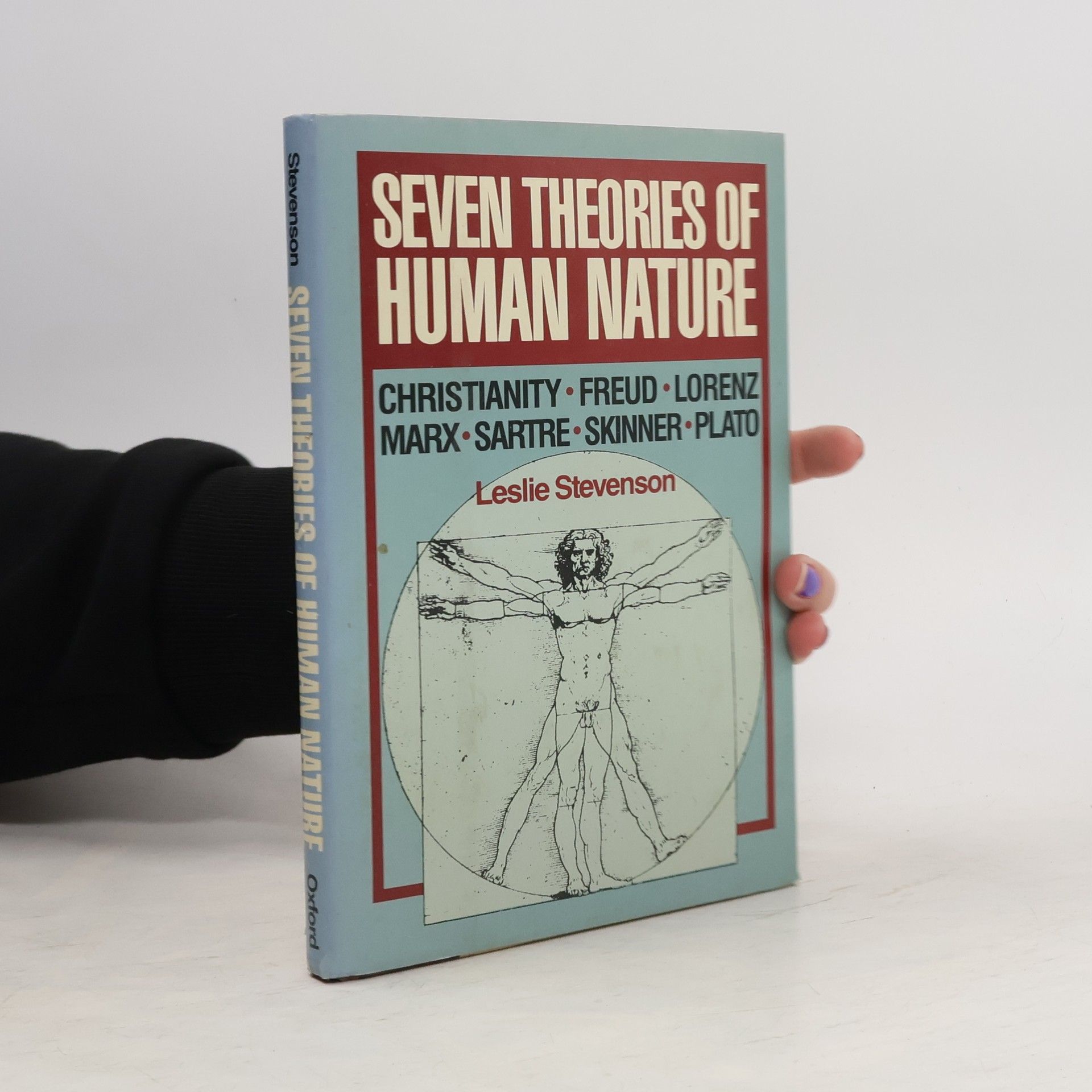This revised philosophy textbook has been updated and enlarged to include new recommendations for further reading and a new conclusion. Discussions of evolution, of sociobiology and of the importance of gender differences are among the features of this final chapter.
Leslie Stevenson Livres





The Study of Human Nature
- 336pages
- 12 heures de lecture
"Now in a new edition, this anthology provides an introduction to a wide variety of views on human nature. Drawing from diverse cultures over three millennia, Leslie Stevenson has chosen selections ranging from ancient religious texts to contemporary theories based on evolutionary science. An ideal companion to the editor's recent book, Ten Theories of Human Nature, 3/e (OUP, 1998), this interdisciplinary reader can also be used independently."--Jacket
"Ten Theories of Human Nature compresses into a small space the essence of such ancient traditions as Confucianism, Hinduism, and the Old and New Testaments as well as the theories of Plato, Immanuel Kant, Karl Marx, Sigmund Freud, and Jean-Paul Sartre. The authors juxtapose the ideas of these and other thinkers and traditions in a way that helps readers understand how humanity has struggled to comprehend its nature. To encourage readers to think critically for themselves and to underscore the similarities and differences between the many theories, the book examines each one on four points - the nature of the universe, the nature of humanity, the diagnosis of the ills of humanity, and the proposed cure for these problems. Ideal for introductory courses in human nature, philosophy, religious studies, and intellectual history, Ten Theories of Human Nature will engage and motivate students and other readers to consider how we can understand and improve both ourselves and human society."--Jacket
Zehn Theorien zur Natur des Menschen
Konfuzianismus, Hinduismus, Bibel, Platon, Aristoteles, Kant, Marx, Freud, Sartre, Evolutionstheorien
- 296pages
- 11 heures de lecture
Welche Erklärungs- und Handlungsmöglichkeiten für ein glückliches Leben bieten uns die philosophische Vernunft und die religiöse Weltsicht? Zehn Theorien aus Philosophie und Religion führen in die elementaren Fragen unseres Lebens ein. Anschaulich präsentiert der Band zentrale Ideen der großen u. a. Platon, Aristoteles, Kant, Marx, Freud und Sartre. Zudem werden Vorstellungen aus Judentum, Christentum, Hinduismus und Konfuzianismus beleuchtet. Spannende und gut lesbare Einführung, gerade auch für Philosophie-Anfänger.
Idea Boga miała znaczący wpływ na historię ludzkości, inspirując zarówno wspaniałe, jak i straszne czyny. Jednakże, co tak naprawdę kryje się za tą ideą? Kim jest Bóg? Wiele osób postrzega Boga jako istotę ludzką, podczas gdy inni widzą Go jako bezforemną, duchową postać, nieograniczoną czasem i przestrzenią. Dla niektórych Bóg to sposób doświadczania życia. Mimo że wielu ma niezachwianą wiarę, inni są niepewni swoich przekonań. Ten krótki przewodnik jest dla tych, którzy pragną zgłębić koncepcję Boga. Leslie Stevenson, filozof związany z Oksfordem i St. Andrews, omawia osiemnaście różnych spojrzeń na Boga, od tradycyjnych ujęć obecnych w kulturze, sztuce i języku, po bardziej abstrakcyjne koncepcje filozoficzne i teologiczne. Różnorodność tych perspektyw wzbogaca nasze postrzeganie boskości. Choć temat ten może budzić emocje, autor zachęca do chwilowego odłożenia własnych przekonań i spojrzenia na ideę Boga z intelektualną ciekawością. Każdy, niezależnie od wiary, może odkryć coś wartościowego w tej refleksji.